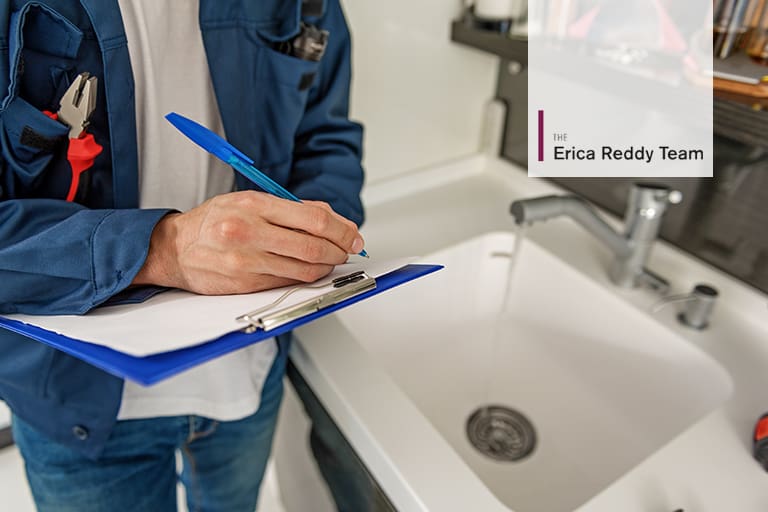
Think you’ve found the home of your dreams? Viewing a living space that seems perfect for you is exciting, but that doesn’t mean you should rush into a purchase. There’s always a chance that the home you’re looking at contains major defects—and discovering them after closing day could lead to some serious buyer’s remorse.
The good news is, a qualified inspector can turn up issues that might otherwise go unnoticed—and provide you with a detailed report. Knowing how to read this document (and which red flags to look out for) will help you make a more informed purchase!
When you’re looking at a home inspection report, here are some of the most important things to keep an eye out for…
1) Mustiness or water damage
Musty smells and minor water damage are often easy to fix, but sometimes they’re not. The root of these problems could be anything from a poorly-performed renovation that’s letting dampness inside to a burst or leaky pipe. In addition to being costly to fix, these issues could be creating something that will lead to even bigger headaches: mold. When it comes to this potential health risk, you’re better off safe than sorry. If you suspect that there may be mold in your dream home, you should seriously consider bringing a specialist in to take a closer look.
2) Foundation cracks
There are different types of cracks that can appear in the foundation of a house. Fortunately, some are less serious than others. You shouldn’t necessarily be alarmed if your inspector finds vertical cracks, which are common in homes that are even just a few years old. In contrast, those of the horizontal variety can be a sign that a home’s structure is bowing—and that could spell trouble. If foundation cracks are noted in your report, you may want to ask the inspector some follow-up questions. Consulting a structural engineer may be your best course of action if there’s cause for further concern.
3) Knob and tube wiring
Faulty electrical wiring can pose a safety hazard to homeowners. In particular, knob and tube systems (which are often found in older homes) are a common source of concern. In truth, this type of wiring isn’t dangerous when it’s well maintained—but problems can arise when owners try to repair it on their own. If an inspector finds this type of system in the home you’re planning to buy, you may want to bring in an electrician to make sure it’s safe. You should also be aware that obtaining cost-effective insurance may be a bit trickier if you have knob and tube wiring, but there are some providers that offer it.
4) Asbestos
The word “asbestos” makes many home buyers panic. Given the potential health problems caused by this hazardous material, that’s understandable. While searching for asbestos can be a challenge, inspectors are usually more thorough when they’re looking at homes of the right age. In these cases, they’ll typically take a close look at areas where the substance tends to found—like in the attic. If anything turns up, removing or containing it is an option (though the process can be costly). It’s especially important to consider these steps if you’re going to be doing renovations, which could release the substance into the air.
5) The age and condition of the home’s components
It’s important to obtain as much information as possible about your potential future home—and its components. How old are the HVAC system, furnace, and roof? When was the hot water tank last serviced? What about the last time the windows were replaced? The truth is, the dates that sellers include in their listings aren’t always one-hundred per cent factual. Your inspector should be able to make a fairly accurate assessment of not only how functional and well-maintained the parts of a home are, but how old it is as well.
An inspection carried out by a qualified professional is worth its weight in gold. If significant issues arise with the home you’re looking at, you may choose to pass on buying it, budget for a major repair, or try to negotiate to have the seller take care of it. Knowledge is power—and carefully reading your inspection report just might be the key to avoiding regret.
Have questions about buying a home? Get in touch—we’d love to talk about the purchase process!

Meet The Erica Reddy Team
Find out how our specialized skill sets and extensive Toronto market expertise empower your real estate venture.





